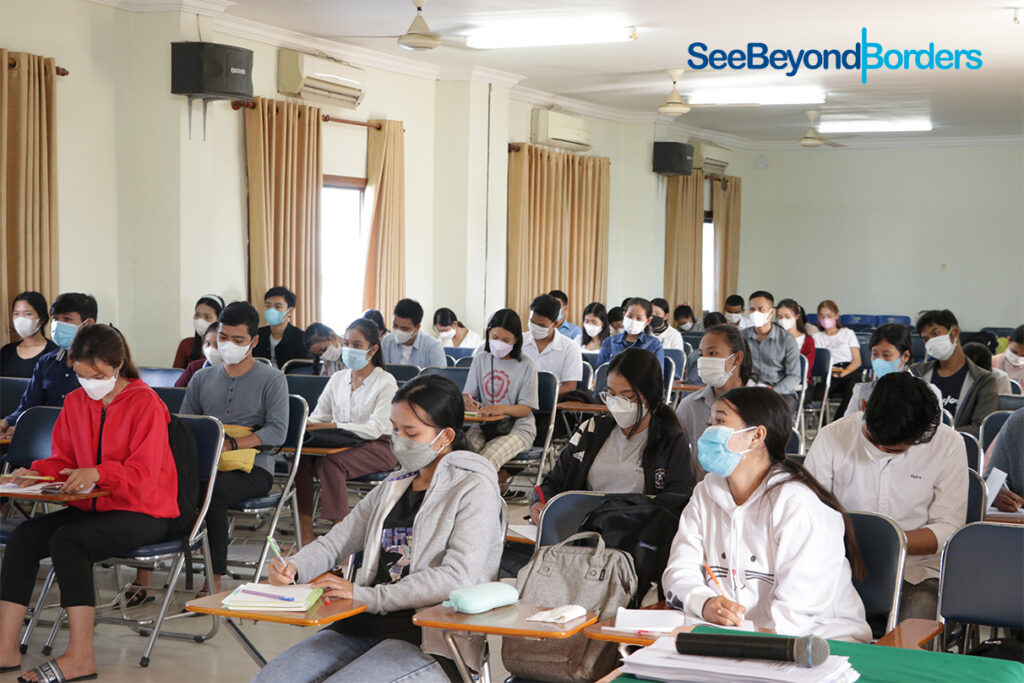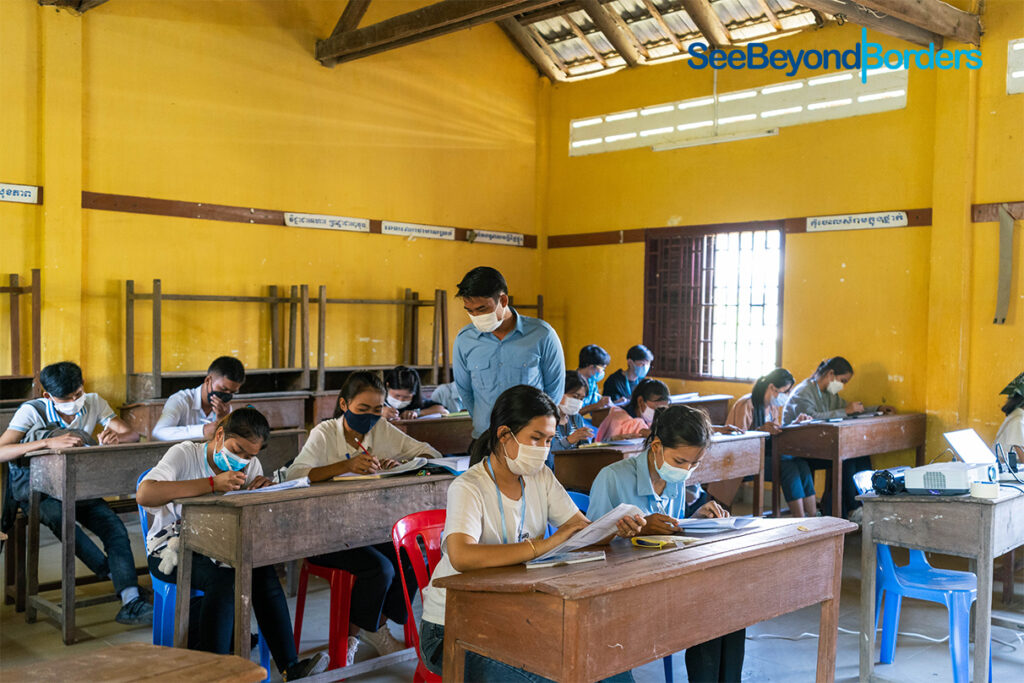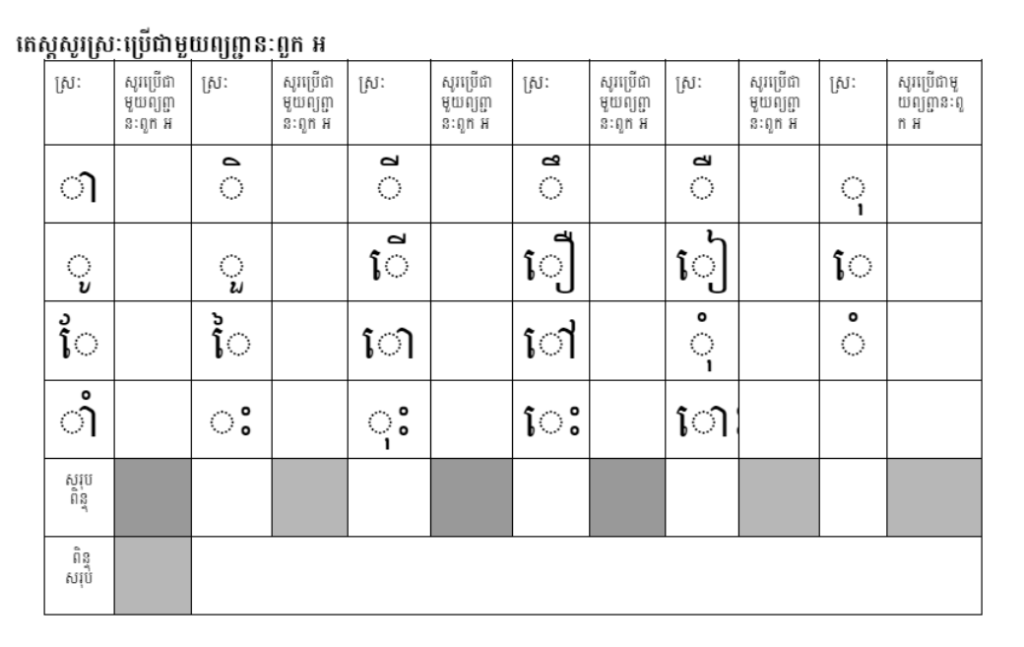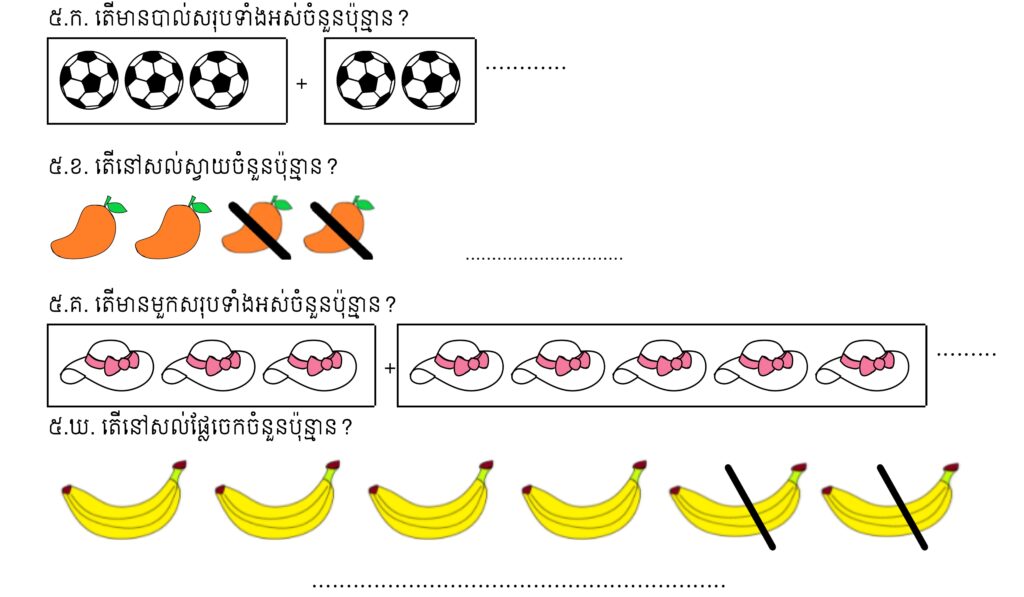In January 2022, we conducted assessments in maths and literacy in 108 schools across Battambang and Siem Reap province. With the help of 60 university student volunteers in Battambang and 20 in Siem Reap, approximately 10,000 students were assessed in test conditions. The results were shared with the classroom teachers so they can understand their students’ current capacity and be better able to tackle areas that they struggled with.

Our strategy at SeeBeyondBorders reflects the organisation’s approach to improving the quality of education, focusing on foundational level skills that will have the most impact on the number of children who can reach a minimum level of proficiency in core subjects. It recognises the need to take small steps which can be adopted widely, minimising the barriers to beginning a process of change.

In Literacy, a number of areas were assessed including letter identification, high-frequency words, listening skills and reading accuracy.

For maths, numbers & operations, measurement, geometry and algebra were assessed.

At SeeBeyondBorders we base students’ Minimum Proficiency Levels on the Global Proficiency Framework, this is a useful global reference to help understand what students should be able to developmentally achieve on a global basis given proper materials and instruction in schools and classrooms, and detect gaps to provide a global reference for revising standards, curricula, materials, teacher training, delivery, and assessments.
Test questions were designed to reflect the statements in the proficiency framework using internationally recognised tests, curriculum resources from MoEYS and past SeeBeyondBorders tests.
Tests were conducted using focus groups with assessors and project managers, data analysis and previous tests.

The results were sobering with 89% of students failing to reach minimum proficiency learning levels. In literacy, 94% of children failed to reach minimum levels. These results underline the size of the challenge ahead.
